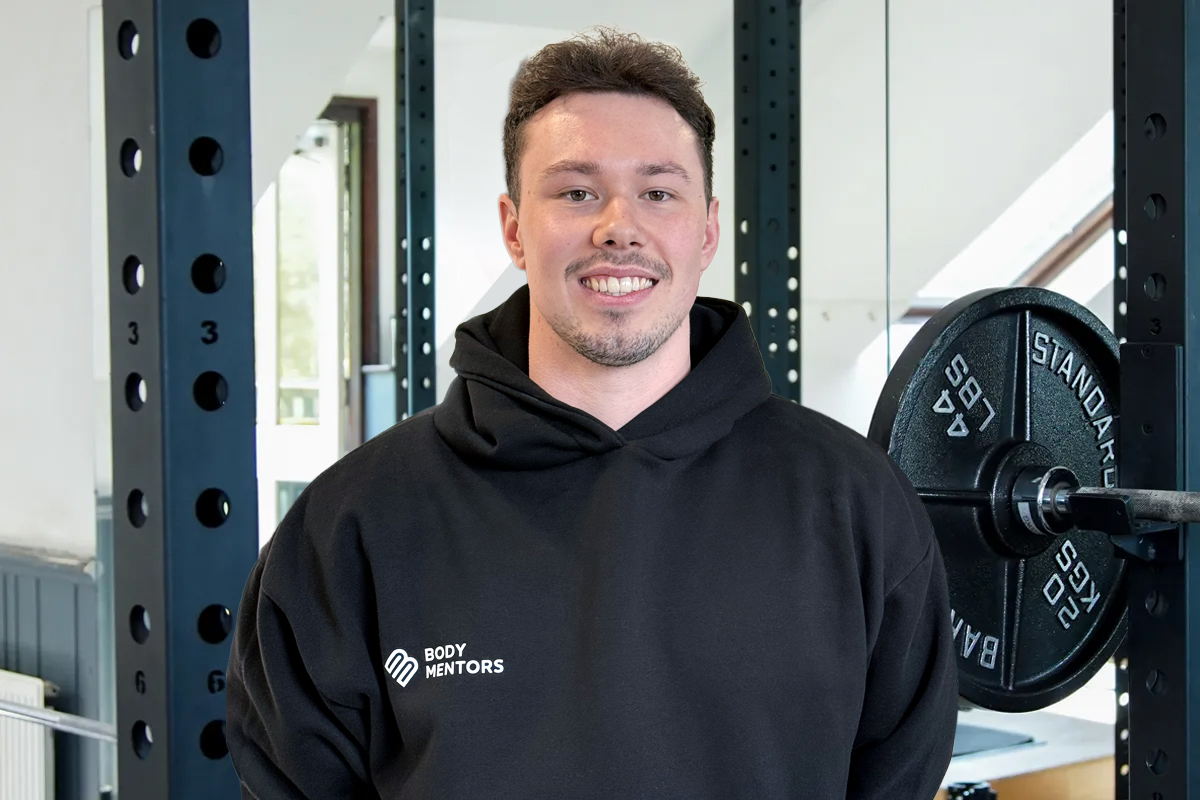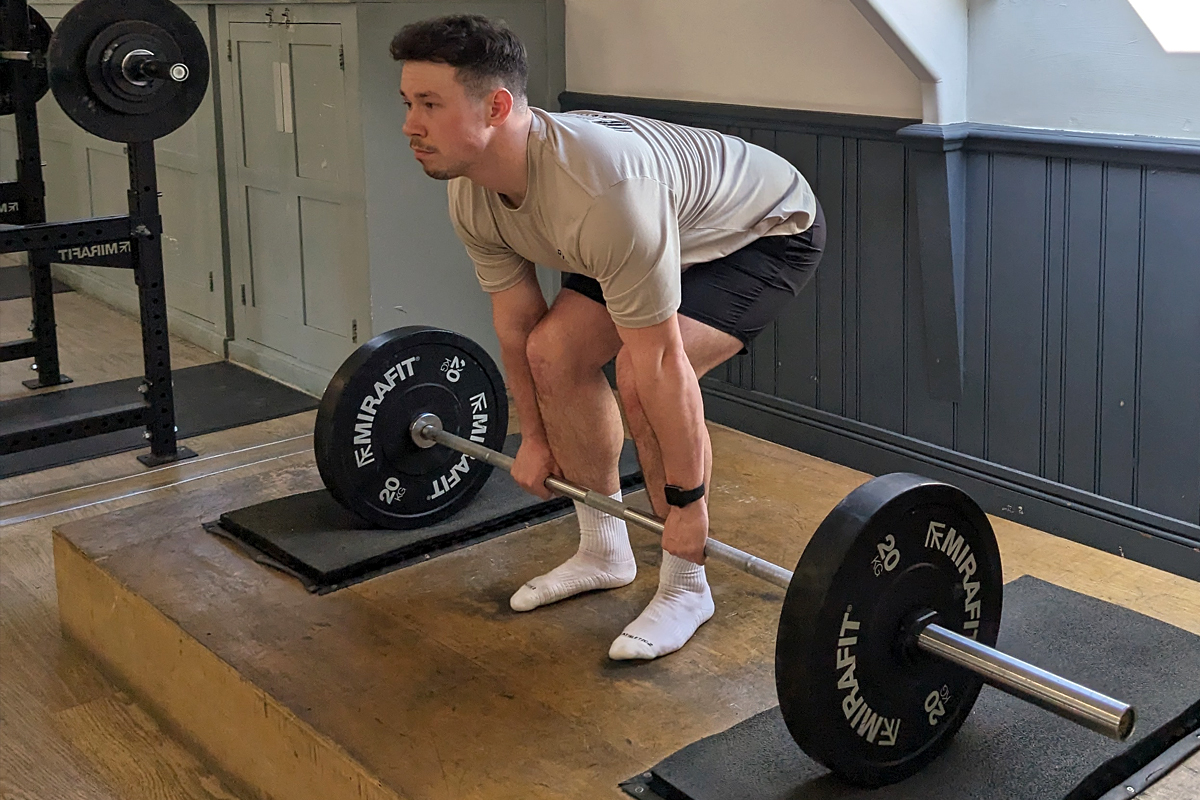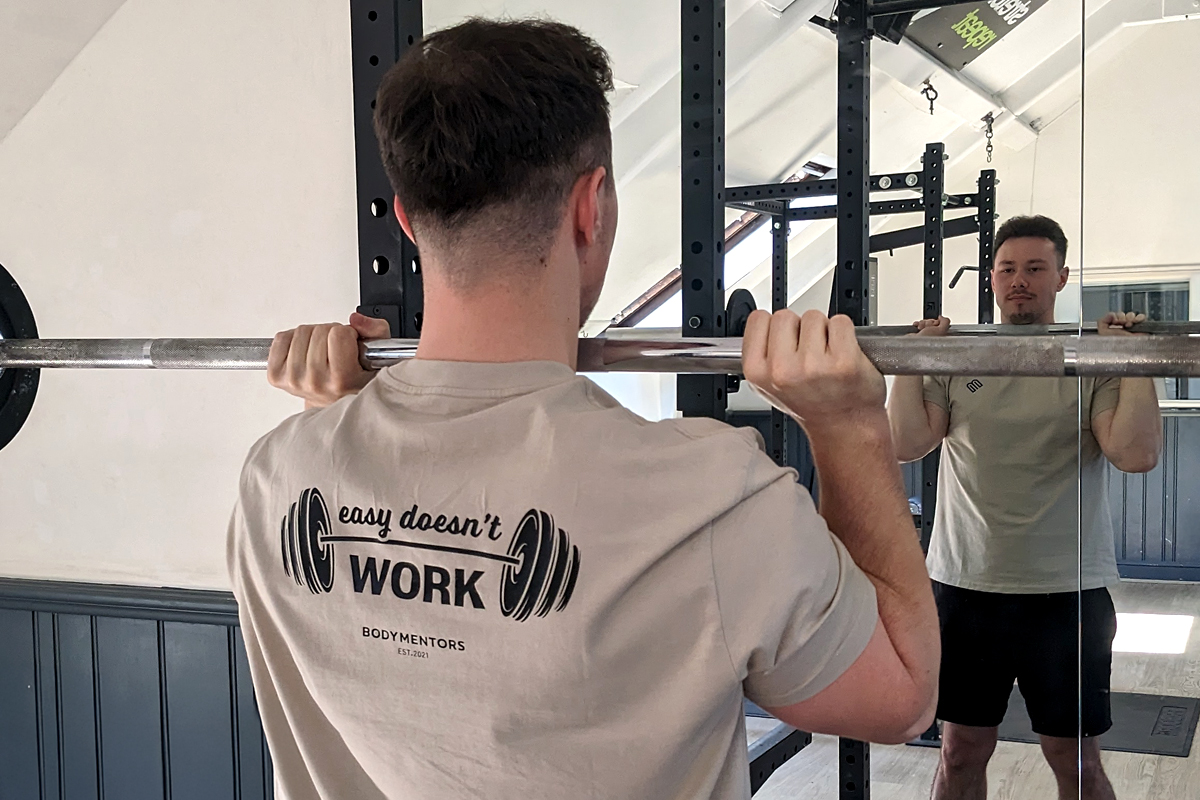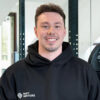
Background & Experience
How did you get started in personal training?
I’ve always been really active and played multiple sports growing up including rugby, football and golf. I naturally found myself becoming more interested in gym training to try and help me progress. My passion for fitness led me to studying Sports Therapy at Bournemouth University. After graduating I progressed into roles with several football clubs and clinics, where I worked with a wide range of clients from the general public and professional athletes.
What are your qualifications and certifications?
BSc (Hons) Sports Therapy
Sports Therapist

Training Style
Can you describe your training philosophy?
As with the Body Mentors approach, I’ve always worked on mastering the basics, and avoiding shortcuts. I have firsthand experience of seeing how this pay dividends in both conditioning and performance in the long-run. Coaching is something I’m very passionate about, I love the process of supporting people to grow and push beyond their limits. Being able to be a part of seeing people fain confidence and change their perspectives on fitness is incredibly rewarding.
How do you customise your training style for different clients?
With my background in Sports Therapy I always pay close attention to my client’s history, whether that’s past injuries, training experiences, or just their perceived strengths and weaknesses. Once I’ve gathered this information, I use my knowledge and gym experience to tailor everything to meet their specific needs. Having dealt with injuries myself, I understand that training around a weakness can feel intimidating. But with proper technique and smart programming, it’s possible to strengthen those areas and move toward a pain-free outcome.

Success Stories & Challenges
Can you share a success story from your coaching career?
During my time working at Maidstone United FC, I worked with players recovering from a range of injuries, including ACL tears, hamstring strains, hip pain, and lower back issues. One story that comes to mind is Kevin, a player who suffered a hamstring tear. We began with gym-based rehabilitation and gradually progressed to on-field rehab. Using a combination of treatment techniques such as ultrasound therapy, dry needling, and soft tissue work, Kevin was able to return to play. To reduce the risk of re-injury (especially important given the high recurrence rate of hamstring strains) gym-based training was essential. Not only did it keep his hamstring strong and mobile, but it also improved his overall fitness. By following a structured programme, Kevin not only stayed injury-free but reported feeling fitter than ever.
How do you help clients overcome challenges and stay motivated?
I always strive to create an environment where clients can truly enjoy their training and get the most out of each session. It’s completely normal for clients to experience ups and downs in their training and performance, so I always try to remain positive and reassuring. I think this is where working with a coach can really help to keep you balanced, providing support during the tough sessions is key for long-term results.
Fitness Journey
What are your personal fitness goals and routines?
My goal this year is a simple one, to build strength and improve mobility. I’m hoping this will continue improving my everyday life, and my golf swing! My training plan is focused on compound lifts, much like the Body Mentors process.
What advice do you have for someone just starting their fitness journey?
We all have different starting points, so focus on your own journey, and don’t be distracted by what other people are doing – whether that’s in the gym or on social media. It’s a cliche, but it’s true, master the basics, be consistent and you will surprise yourself at the progress you can achieve.
How do you stay updated with the latest fitness trends and research?
A combination of LinkedIn to follow credible sources in the industry, and researching topics of interest on PubMed (which is an incredible resource for comprehensive studies). I have always given a lot more attention to evidence-based research over fitness trends – it gets easier to see why trends don’t tend to stick around for too long!
